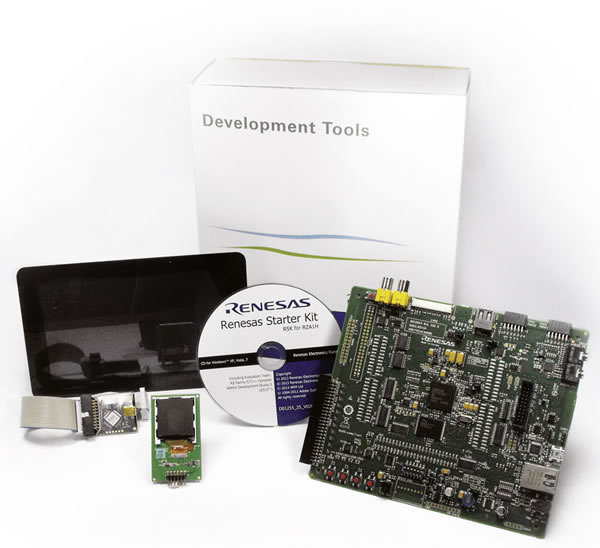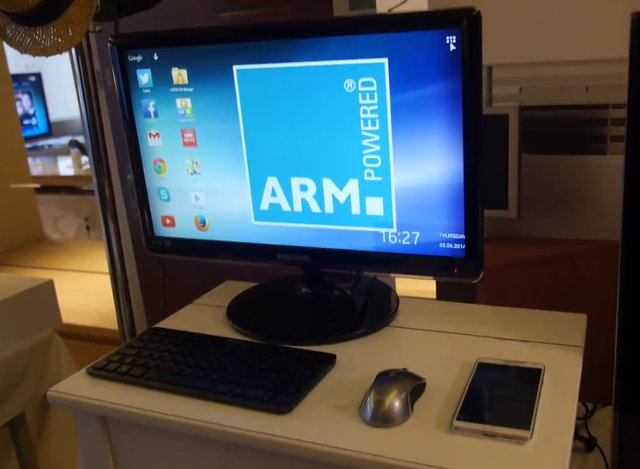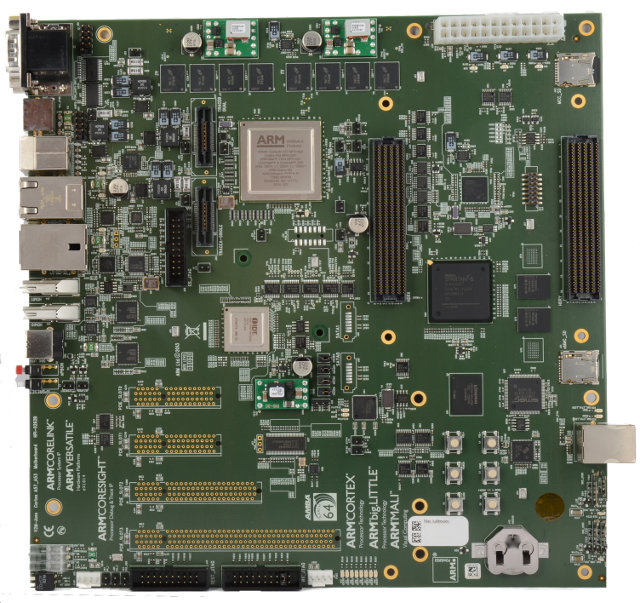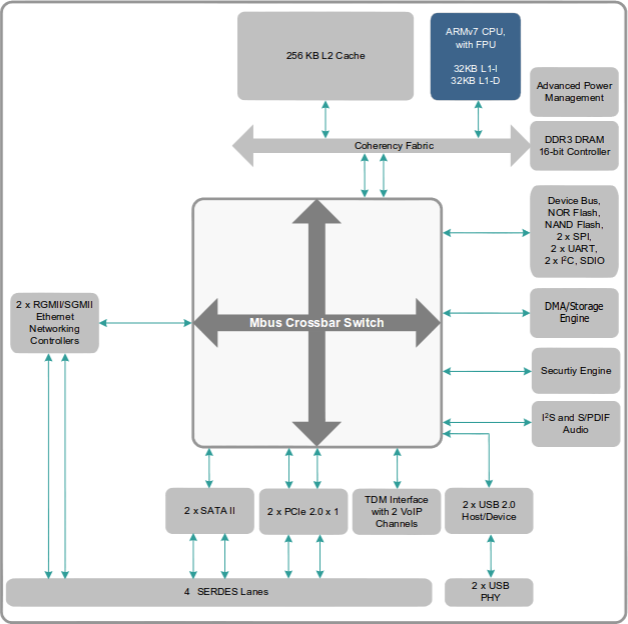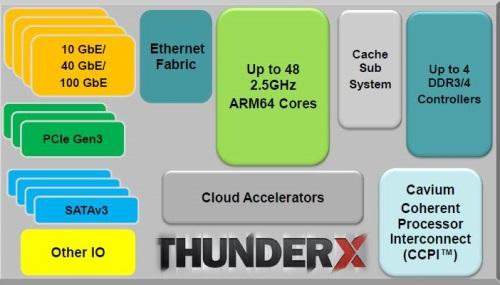Announced just about a year ago, Renesas RZ/A1 ARM Cortex A9 processor family can be used for human machine interface applications, and has the particularly to embed large amount of SRAM, especially the RZ/A1H series with 10 MB SRAM which allows the development of some applications without external RAM chip, lowering both board size and BoM cost. I’ve just come across a development kit dubbed “RZ/A1H Starter Kit”, and the just released Emtrion DIMM-RZ system-on-module both powered by Renesas RZ/A1H SoC. Renesas RZ/A1H Starter Kit+ (RSK) The development kit includes the mainboard, a 7″ TFT LCD (Optional), a detachable Colour LCD Board Pmod Compatible,a detachable AD Adjustment Shaft, Segger J-LINK Lite debugger, various connection cables, a power supply, a Quick Start Guide, and a DVD-ROM with documentation, ARM DS-5 IDE (with 32K code limit), KPIT GNU compiler for Cortex A9, Segger debugger drivers. and sample code. The mainboard has the […]
Peek into the Smart Home of the Future with ARM Seamless Computing IoT Demo
We’ve seen lots of home automation being launched on crowdfunding platforms in the last year or so, and companies like Samsung, Archos, Google and Apple have launched, announced, or bought smart hone solutions. Recently ARM has hosted a demo for the smart home based on Cortex-M MCU mbed development boards, a single board computer gateway, and sensinode connected home software framework. Although some parts of the demo are unlikely to really have uses, e.g. you can look at the window to check the weather, I found the demo to be very interesting, especially with regards to the central role of the smartphone, and computing convergence. The list of different demos that can be seen in the video below is as follows: As you walk close to the main door, the system checks the weather, and if it rains, blinks a LED and emits a sound close to your umbrella, and […]
Linaro Announces 64-bit ARM Android Port on Juno ARM Development Platform
Last week, Linaro 14.06 was released and one of the highlights was Android booting on ARMv8 models, but the organization has actually ported Android to a new 64-bit ARM platform. Juno ARM Development Platform is actually software development platform for ARMv8-A, including Juno Versatile Express board and an ARMv8-A reference software port developed by Linaro. Juno VExpress Board has the following key hardware features: SoC – 2x ARM Cortex A57 cores @ 1.1 GHz (2MB L2 cache), 4x Cortex A53 cores @ 850 MHz (1MB L2 cache) in big.LITTLE configuration with Mali-T624 GPU @ 600 MHz. Compliant with SBSA specifications Level 1. I/O FPGA – Xilinx SPARTAN-6 MCU – ARM Cortex M3 for Motherboard Configuration Controller (MCC) System Memory – 8GB DDR3L @ 1600 MHz Storage – User and configuration micro SD card lots, 64MB NOR flash, configuration EEPROM Connectivity – 10/100M Ethernet + 10M “configuration” Ethernet Video Output – […]
Marvell Armada 370 Processor Datasheet Released, Mainline Linux Kernel Supported on Netgear ReadyNAS 102/104
Free Electrons has been working on porting several ARM SoC to the Linux kernel (mainline), including Marvell XP and 370 SoCs, and they’ve been informed by Marvell that the company finally released Marvell Armada 370 processor publicly without requiring NDA nor registration. Marvell Armada XP dual and quad core processors datasheet found in higher-end NAS and cloud servers has not been released (yet), but we’ve been told many peripheral blocks are very similar, so Marvell Armada 370 datasheet can also be used for Armada XP processors to some extend. Two documents have actually been released for Marvell Armada 370: the functional specification and the hardware specification (datasheet). The first document is actually the one with the most information with 1148 pages providing details about peripherals, against 164 pages for the latter providing details about pins and electrical characteristics. So we’ve got an ARM SoC with mainline kernel support, and decent […]
Linux 3.15 Released
Linus Torvalds announced the release of Linux Kernel 3.15 last Sunday: So I ended up doing an rc8 because I was a bit worried about some last-minute dcache fixes, but it turns out that nobody seemed to even notice those. We did have other issues during the week, though, so it was just as well. The futex fixes and cleanups may stand out, but as usual there’s various other random fixes since rc8 in there too: mainly drivers (drm, networking, sound, usb etc), networking, scheduling and perf tooling. But it’s all been fairly small and quiet, which *may* of course be due to the fact that last week was also the first week of the merge window for 3.16. That might have distracted some developers. I’m not entirely convinced I liked the overlap, but it seemed to work ok, and unless people scream really loudly (“Please don’t _ever_ do that again”) and give good […]
First Tizen 3.0 Common Milestone Released, Developer Program Announced
The Tizen Steering Group has announced the first release of Tizen 3.0 Common. Tizen Common is the common subset of development / build / test platform of the Tizen profiles, used by platform developers to develop the next version of the profiles, and a Tizen 3.0 common release is planned every quarter. This milestone release includes: 64-bit support for both Intel and ARM architectures Crosswalk-based web runtime Multiuser support Systemd Security: three-domain rule system for SMACK and Cynara as authorization framework Wayland display server Pre-built binary releases for can be downloaded @ http://download.tizen.org/releases/daily/tizen/common/common-wayland-x86_64/tizen_20140602.26/ for Intel Atom 3815 NUC Kit and NEXCOM VTC1010 in-vehicle computer based on Intel Atom 3825. However, Tizen 3.0 Common will also be tested on Intel NUC Haswell (core i5), Lenovo x230 IvyBridge (core i5) and on the ARM side, ODROID-U3 development board. If you want to build your own, refer to the developer guide, using tizen_common_2014.Q2 tag. More details can be found […]
Cavium ThunderX Server SoC Features up to 48 ARM 64-bit Cores
ARM SBSA specification for server supports up to 268,435,456 CPU cores for the second level of standardization on one or a combination of SoCs. We’re not quite up there just yet, but Cavium ThunderX is an ARM server SoC with up to 48 cores on a single chip, which is the highest number of cores I’ve ever heard of in an ARM SoC. The company created their own custom processor cores using an ARMv8 architecture license, designing an SoC complies with ARM’s Server Base System Architecture (SBSA) standard with the following key features: ARM based SoC that scales up from 8 to 48 cores with up to 2.5 GHz core frequency with 78K I-Cache, 32K D-Cache, and 16MB L2 cache. Fully cache coherent across dual sockets using Cavium Coherent Processor Interconnect (CCPI) Integrated I/O capacity with 100s of Gigabits of I/O bandwidth 4x DDR3/4 72-bit memory controllers supporting up to 1TB RAM […]
Linaro 14.05 Released with Linux Kernel 3.15, Android 4.4.2, and Ubuntu Trusty
Linaro 14.05 has been released with Linux Kernel 3.15-rc5 (baseline), Linux Kernel 3.10.40 (LSK), Android 4.4.2, and Ubuntu has been switched from Saucy to Trusty. More work has been done on big.LITTLE processing and ARMv8 support with notably completing bootstrapping with Debian 64-bit. New hardware platform have started to pop-up such as TI J6-Vayu which must be an evaluation board for Texas Instruments Jacinto 6 dual core Cortex A15 SoC for automotive application, as well as IFC6410, a Snapdragon 600 development board which got a Ubuntu LEB image. This month also marks the first release of Linaro GCC 4.9 toolchain. Here are the highlights of this release: Linux Linaro 3.15-rc5-2014.05 new Android topic (linaro-android-3.15-experimental) uses the resent AOSP code base GATOR version 5.18 (same version as in 2014.04) uprobes topic removed as all patches have been accepted into mainline updated big-LITTLE-pmu topic from ARM LT updated basic Capri board support […]


